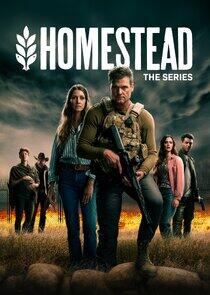The History of Comedy - Season 2
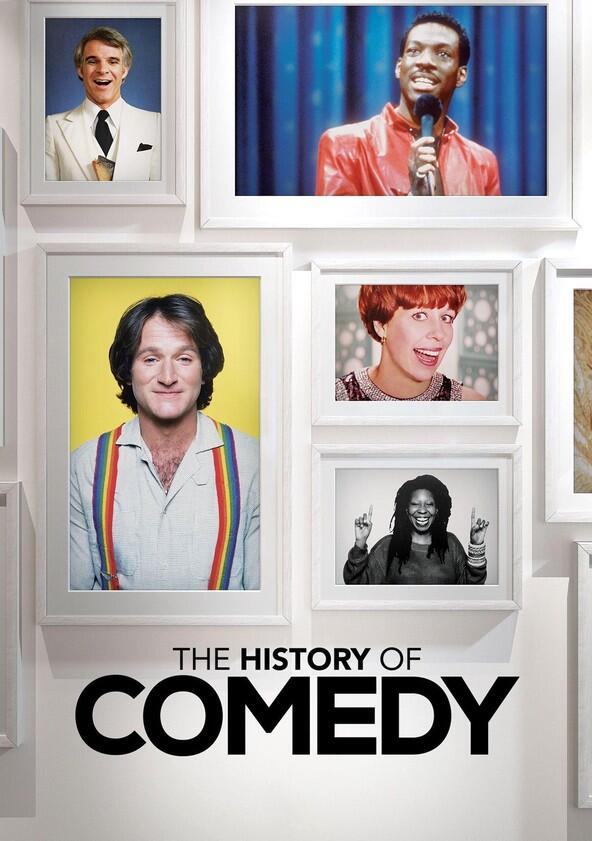
Season 2
The History of Comedy Season 2 is a six-part CNN Original Series executive produced by Sean Hayes and Todd Milliner (Hazy Mills) and Emmy Award winners Mark Herzog and Christopher G. Cowen (Herzog & Company). Using archival footage punctuated by contemporary interviews with comedy legends, scholars and current stars, The History of Comedy explores the spinning gears that make the comedic mind tick. From teams & duos, animation to improv & sketch, the series examines not only what makes us laugh, but how comedy has affected the social and political landscape throughout history.

Episodes
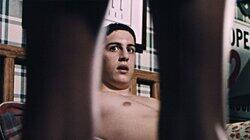
Carnal Knowledge
One of the oldest forms of comedy, sexual humor, has been a part of funny storytelling throughout history. From Aristophanes to Shakespeare to Sarah Silverman, the ubiquitous nature of relationships and sexual pursuits throughout life has made sexual humor an attractive topic for comedy—frequently pushing the limits of both comfort and political correctness. Whether it be Mae West or Animal House, Eddie Murphy or American Pie, sexual humor has always found a way to get past the puritanical and continue to land on the front lines of comedy.
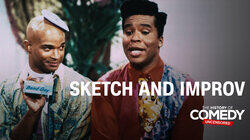
Sketch and Improv
Ever since Commedia dell'Arte brought traveling troupes through Renaissance Europe presenting short shows with improvised dialogue, sketch and improv comedy has been an important part of new comedic talent. On television, sketch comedy has always been present with Your Show of Shows, Monty Python's Flying Circus, SCTV, The Kids in the Hall, Mr. Show and In Living Color, providing decades of short-form comedy to audiences. In comparison, Saturday Night Live has spent over 40 years recruiting talented performers from influential improv groups to create the longest-running sketch show in American television history.
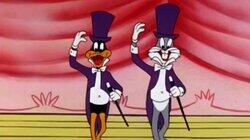
Drawn to Be Funny
Some of the very first "stars" of comedy came from the minds and pencils of talented animators. From Felix the Cat to Mickey Mouse and Popeye to Bugs Bunny, animated comedy dates back to the earliest part of the last century and continues to attract audiences today. Television programs like The Simpsons, Ren & Stimpy, and Beavis and Butt-Head paved the way for even more subversive and hilarious shows like South Park, Rick and Morty, and Bob's Burgers. Theatrical releases like Aladdin, Shrek, and Toy Story proved that audiences didn't have to physically see comic legends like Robin Williams, Mike Myers and Tim Allen to fully appreciate them.
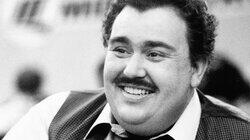
Gone Too Soon
An exploration of the ways the deaths of comedic legends affect their audiences and comedy in general and how that connection makes the loss more significant. Comedic performers connect with their audiences in a unique and personal way, so when one of them is gone too soon, the loss can feel more profound. Whether it be comedic legends like John Candy, Phil Hartman, Bill Hicks, John Belushi, Chris Farley, and Gilda Radner, or lesser-known comics like Patrice O'Neal, Greg Giraldo, Harris Wittels, and Mitch Hedberg, their voice is gone prematurely. Even when a comedian has been with us for a long time like George Carlin, Garry Shandling, and Joan Rivers, it still feels as if they had a lot more to say.
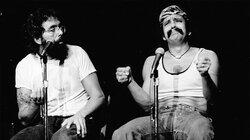
In It Together
Comedy teams have always been an important part of classic comedy – think Laurel & Hardy, Abbot and Costello, the Marx Brothers, the Three Stooges, George Burns and Gracie Allen, Martin and Lewis, and Nichols and May. The tradition of comedic teams has continued over the decades with the examples of Cheech and Chong, Gene Wilder and Richard Pryor, the Blues Brothers, and Tina Fey and Amy Poehler. It continues to reinvent itself today in the form of sketch teams like Key and Peele, musical acts like Garfunkel and Oates, and twin brother stand-up team, the Lucas Brothers.

No Offense (Going Clean/Flipping Funny)
There has always been a need for family-friendly comedy, and many artists have taken the task despite the inherent challenges. Comedians like Jerry Seinfeld, Jim Gaffigan, Ellen DeGeneres and Sinbad found success on stage "working clean." For comedians like Bob Saget, Tim Allen, and Whitney Cummings, they found themselves altering their comedic voices when they landed lead roles on network sitcoms. Writers for television shows across every era – from I Love Lucy and In Living Color, to Will & Grace and Modern Family have always found creative ways to use euphemisms and innuendo, while still abiding by the rules set by the what were often strict network censors.
Recently Updated Shows

The Creep Tapes
Based on a collection of videotapes in the secret vault of the world's deadliest and most socially uncomfortable serial killer, who hires his victims to film him for the day under false pretenses, each episode exposes a new victim from one of the fabled 'Creep Tapes'.
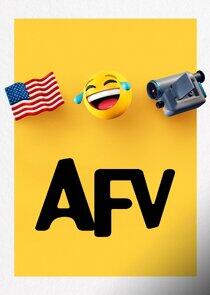
America's Funniest Home Videos
ABC's longest-running primetime entertainment show, America's Funniest Home Videos, returns for season 36 this fall with the same mission -- giving families something genuinely funny to enjoy together on Sunday nights.
"AFV," the longest-running primetime entertainment show in ABC history, returns for season 36 with the same mission - to provide viewers with hysterical moments that fly by at a dizzying pace.

The Real Housewives of Potomac
Just up the river from our nation's capital lies a hidden gem—Potomac, Maryland. Its rolling hills, gated mansions, sophisticated prep schools, and exclusive country clubs all serve to keep the area invitation-only. Sprinkled throughout this community are a handful of old-line, wealthy African-American families who have historically broken racial barriers to provide a life of privilege for their children. The Real Housewives of Potomac follows the upscale lives of six intriguing, well-to-do women: Gizelle Bryant, Katie Rost, Karen Huger, Charrisse Jackson-Jordan, Robyn Dixon, and Ashley Darby, all of whom have fought for their places in this society by way of legacy or marriage. In a town where entry is granted only through class, pedigree, and lineage, how far will these ladies go to secure their spot at the top of this prestigious circle?

The Traitors Canada
Follow a group of contestants – including some familiar faces – who live together as they complete a series of challenges with the goal of earning a cash prize. The catch? Some of the contestants are traitors who will attempt to deceive and manipulate their way to the prize instead of sharing it amongst the group. In this psychological adventure will the traitors be unmasked in time?
